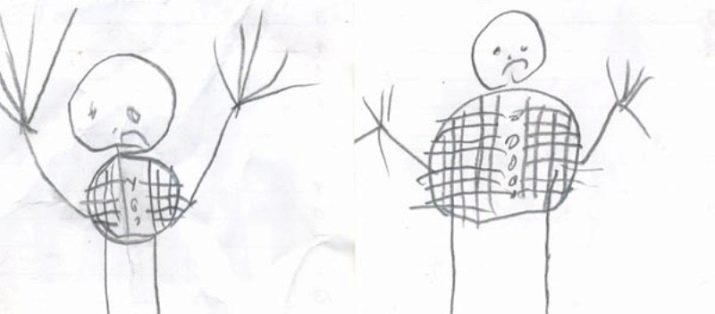Everyone heard that learning to forgive is very important and necessary. But it is one thing to talk about the necessity and benefits of forgiveness, and quite another to learn to forgive in reality. Everyone who has tried it at least once knows that forgiveness is very difficult, time-consuming and not always obtained on the first try. You should be aware of the main difficulties of this process and master some useful techniques that will help achieve the result.
Can any forgiveness be forgiven?
Psychology has only one truthful answer to this question, which cannot be doubted. Deep, strong, bitter, shallow - absolutely any offense can and must be forgiven. Even what a person considers a betrayal, what at first seems incredible, breaking life into “before” and “after”. Another question is whether a person wants to forgive? Unfortunately, many are completely useless to persuade, persuade and scare the dangers of long-standing grievances for life and health. They do not want to part with their grievances; they are not determined to forgive anyone. Years go by, resentment widens and multiplies, people carefully “feed” them in the soul. Then he gets sick, fails, gets into trouble. Again, he does not draw conclusions and continues to “feed” the insult. This will continue until it absorbs it entirely - oncology, death.

Forgiveness makes it possible to free oneself, to free another. Get rid of resentment - how to get rid of a heavy load and easily move on. If you choose this path, you will have to try to master all the wisdom of forgiveness. Very often people are embarrassed to forgive, fearing to be considered soft-bodied, toothless.There are certain social dogmas that say, for example, that you cannot forgive a cheated wife, that once a betrayer will betray, and again, that enemies who have encroached on the most sacred are unworthy of forgiveness. Under the influence of dogma, a person refuses to even allow the thought of forgiveness. But if you discard all conventions and dogmas, then you will easily understand that all the sins that they talk about can also be forgiven.

It is not at all necessary to tell everyone and the offender that you forgave him, you do not need to show your generosity at all, it may look like a posturing. In addition, such forgiveness is not always true, sincere. It is quite enough to forgive another in the soul, to let go of the load within you. That is what we need to learn. Resentment is one of the most difficult feelings. It consists of anger, disappointment, insult and pity for your person and is a response to some event, person, act, words that contradict our expectations.
Resentment is never positive; it is always exclusively destructive.

The man believes that he was wrongly wronged, pity himself, he is outraged and depressed. Irreversible circumstances, when it is no longer possible to change anything, cause the most powerful, deepest resentments. These include facts of betrayal, betrayal, childish resentment against parents. You cannot go back and replay these situations. But you can change your attitude towards them. None of the people born with the ability to experience resentment. Newborns do not know how to be offended. Psychologists attribute only innate emotions to fear. Careless actions of a baby can scare you, you can cause physical pain, but you can’t offend a baby.
Children learn from this complex cocktail of emotions from adults, copying their behavioral and emotional reactions. And usually by the age of one and a half years they already perfectly know how to demonstrate resentment.

Before learning the ability to forgive, it is important to be able to identify types of resentment. It can be demonstrative and hidden. The first is the reaction that a person needs in order to achieve something. It is also called manipulative. So children force parents to buy a toy or give sweets. So women and girls are often offended. She is always on display. The second one is very dangerous, because a person hides it, closes, worries hard, not trying to change anything.
Resentment can be directed at a specific person (at a husband, at a wife, at a friend), at a group of people (at colleagues, at ethnic groups, at all women or at all officials), at the whole world, at higher powers, destiny and on oneself himself. The most difficult in the process of comprehension and forgiveness are insults to oneself, the world, higher powers and all kinds of hidden, carefully hidden insults.
Why do people take offense at each other?
If you are offended, this means only one thing: it was not someone from outside who came and offended you, but you yourself allowed yourself such a response. This means that you have created a grudge yourself. You and eliminate it. To understand why this happens, you need to know how resentment arises. The mechanism of a complex feeling is very simple, it does not depend on whether someone wanted to offend you or everything happened spontaneously. The basis of resentment is always the actual inconsistency of your expectations and reality. Psychoanalysts identify four main actions that a person performs in his mind a fraction of a second before experiencing resentment:
- creating an illusion, expectation (what a person should do, what the world should give us, how everything should be, so that it would completely suit us);
- observation of reality (how events actually develop);
- comparing expectations and reality, detecting the differences between the first and second;
- informed decision to respond to detected nonconformities.

It makes no difference what offense of what type or kind is developing.The described mechanism is equally fair and accurate for any situation: be it a family quarrel and resentment for a particular person or a social conflict and resentment for a whole collective of people. At any of the four stages, a person can take control of the situation, and then resentment will not happen. The ability to decompose any offensive situation into four stages is the right start to work on your negative feelings. These four actions help you better understand how and why the offensive situation occurred, why you are in pain.
Now, knowing that resentment is just your reaction, existing only in your mind and nowhere else, you can begin to take responsibility for this destructive feeling and try to let it go. Is the husband guilty that the wife was offended by him? No, because she made the decision to take offense herself. Is life unfair, giving one money and a good job, but not giving it to another? No, because a person made a decision to take offense at life himself. The anger, disappointment and other emotional nuances that accompany our experiences when we decide to take offense are also our personal ones, and we can deal with them. Understanding this usually reduces the level of claims. There comes an understanding that it is not so necessary to wait until the offender ripens to an apology: they are not necessary.
To forgive, we only need our own desire to reverse our own decision.

How to learn to forgive?
In addition to the avengers, who do not know how to forgive anyone and nothing in principle, there are people whom psychologists refer to as pseudo-forgiving. Such people, although they say “forgive”, in fact, deep down they all remember and are ready at any time to reproduce the insult and throw out anger at the offender. If you are determined to learn to forgive, get rid of negative feelings, then work on internal mistakes cannot be avoided. You can cope with an insult only after it is lived, accepted, analyzed with mathematical precision. After that, you can release the insult, free yourself from it, remove from the soul that which is so burdensome.

Work on yourself will not be simple and enjoyable. You may have to learn something new and unpleasant about yourself. But the deliverance is worth it. To begin with, we will evaluate the four mental thought processes that occur before experiencing resentment and honestly answer a few questions.
- What were my expectations? Why were they like that? Was there any reason to build such illusions?
- Why did man do exactly what he did in reality? What were his motives? What did he want? Did he know about my expectations?
- So were the differences I found between expectations and reality so objective?
- Why do I need an offense that I created: I want the offender to change his actions, I want to get something, I want to end my relationship with a person at all, and offense is needed as an excuse?
Think about what is behind your insult. It can be ridiculous, unreasonable, dishonest, inflated. No one in the world is obligated to meet someone's expectations. To cope with an unpleasant feeling that is literally poisoning your life now, forgiving the offender will be much easier if you give honest answers to these questions. Consider several common situations and ways out of an offended state.

Husband
Despite the fact that your spouse or loved one promised to make you happy, he is still a separate person. He has his own interests, plans, views and opinions. He promised you happiness, but did not say that happiness is in your hands. Whether you will maintain a relationship with a man after his actions, which have deceived your expectations and requirements, or prefer to leave, does not affect forgiveness.
You need to be forgiven in any case: it is not for him, but for you, to live on with a light heart and a normal state of health. Remember the good that is characteristic of this person: pleasant events and moments, situations in which a person revealed his best sides. Mentally put yourself in his place and try to identify his true motives. Realizing them, thank the person for everything beautiful that happened, and let go of the insult. Exhale it. Prevent her from returning. It may not work out the first time, but it will certainly work out.

Children
Resentment of children in parents is very common, and they are usually incredibly strong and destructive. A grown child lives his own life, pays less attention to his mother or father than before, and this is not surprising. If you take a sheet of paper and a pencil and honestly write down the answers to all the questions proposed, it will most likely turn out that it is not the daughter and son who are to blame for everything, but the higher desire to continue to hold the child’s hand and control his life. The requirement is unreasonable, because the child has grown and is now ready to hold his own children by the hand.
The motives of a son and daughter can be very creative: work, study, creating your own family. Most children also don’t know what kind of expectations parents build in their head.

Tell your child that you would like to see him more often, that you need his help. Refuse unrealistic and outdated installations and expectations-requirements. Remember the good: how the daughter took her first steps, and the little son brought his first five. Mentally bless the child, let go of resentment, let love into the heart. An excellent method of psychotherapy at home is a family photo album: it allows you to mentally return to a good past, visualize the positive.
Colleagues
Relations with colleagues can be of varying degrees of tension. When working with such grievances, it is very important to immediately determine whether you are offended by someone specific or your entire work team. In any case, follow the pattern. Analyze: what, exactly, did you expect from your colleagues? How should they handle you? What should have been done for you? How to proceed? Did they know about your internal requirements? How reasonable are these requirements and do they not infringe on the interests of others?
A simple example: you are offended that a colleague dumped all the work on you on the eve of the New Year holidays, and she took leave to buy gifts for children. Firstly, she does not know what requirements for her behavior you have. Secondly, she has good reasons: gifts for children. And finally, your colleague more than once helped you out when you needed to leave work. Remembered? Mentally thank your grudge for a life lesson, wish a colleague successfully choose gifts and let go of the grudge.

Similarly, you need to disassemble and conflict situations in the team. Behind any conflict is a mismatch of expectations: the team expected one thing from you, but you did otherwise, you expected something specific from your colleagues, and they did the opposite. After identifying the motives and positive traits of each of the colleagues, it is important to let go of the offense. And only after that decide whether to work in the team further or just leave a place and find another job. Whatever the decision, it’s important to forgive.
Important: in any situation, with any offense, remember that you can’t hide this feeling, leave it unworked, you can’t fight it and deny it. This will not bring relief and creates a threat of accumulation of anger and self-pity, which can cause the development of somatic diseases. When working with each offense you need:
- recognize the fact of feeling;
- accept responsibility for the offense solely on yourself;
- divide it into four components;
- replace all negativity in the analysis with positive feelings.

Psychological techniques
In psychotherapeutic practice, several methods of dealing with grievances are widely used.
Methods of Sanogenic Thinking by Professor Orlov
This method was developed in 1993 by professor Yuri Orlov. Sanogenic is called healthy thinking.The method describes how to achieve forgiveness by replacing pathogenic thoughts with healthy, positive ones. Teachers work today according to this methodology, students of medical universities study its theses in order to use it later in medical practice, it is recommended to everyone who works with convicts and people with disabilities. The method includes the following steps:
- self-observation (writing in a notebook daily thoughts, a description of feelings, the more the better);
- determination of the validity and nature of their claims and expectations;
- assessment of reality and assessment of the nature of resentment.


The task is to clearly demonstrate the difference between expectations and reality and learn how to replace the negative with the positive in reality.
The goal is the adoption of reality without claims and preliminary expectations, the complete acceptance of the world and people, an understanding of their actions, actions, motives.
Portrait of resentment
This method was created back in the last century by Soviet psychiatrists to help overcome stress and resentment to people who have been abused for a long time in a traumatic situation. Today, the method is widely used to establish the psychosomatic causes of cancer, excess weight, obesity, and cardiovascular diseases. A person is invited to draw his resentment. It makes no difference whether he can draw well or not at all. Drawing allows you to bring out from the inner world that which a person usually suppresses and hides.

Be sure to record or voice answers to certain questions.
- Where did she live (in the head, heart, kidneys, stomach or elsewhere)?
- What dimensions does it have (large or small)?
- What is its structure (it is liquid and iridescent, solid and stuck, like a cloud of gas and almost weightless)?
- Is she cold or hot?
- Does she have color and smell? What color does it smell?
- How old is she (how long has she appeared)?
- Why does it escalate, in what circumstances is this happening?
- Why does it exist? What is its purpose and task?
- What are the pluses it gives (maybe it protects against communicating with someone unpleasant or dangerous)?
- What will be the offense (holiday, feast, seeing off on the platform)?
- What will settle in this place instead of her? Identify the positive feeling that should live where there was resentment.
We especially dwell on the last point. Create a psychological anchor. For example, imagine a large and yellow fragrant orange that was presented to you as a child on New Year's Eve. Each time the insult will return, reproduce in memory its smell and image. Gradually, an orange and a sense of joy will supplant the negative traces of resentment. Burn or tear a drawing with a portrait of resentment at the end of the work.
Technique "Chair"
A popular and very effective technique, which is based on talking to the offender honestly. But instead of him, an empty chair or stool will stand opposite you. You can throw out anger and resentment in the literal sense of the word: shout at it, kick it with your foot, spit at it. Having lived through negative feelings, you can say goodbye to them.

"Court"
Letting go of the past is much easier if all the details of resentment are worked out. Gather a lawsuit. Act as a prosecutor: name all the crimes of the offender, blame him. Act as a lawyer: protect the offender, justify. Become a judge: weigh the arguments and decide to forget.
See how to release a grudge and forgive a person in the next video.









